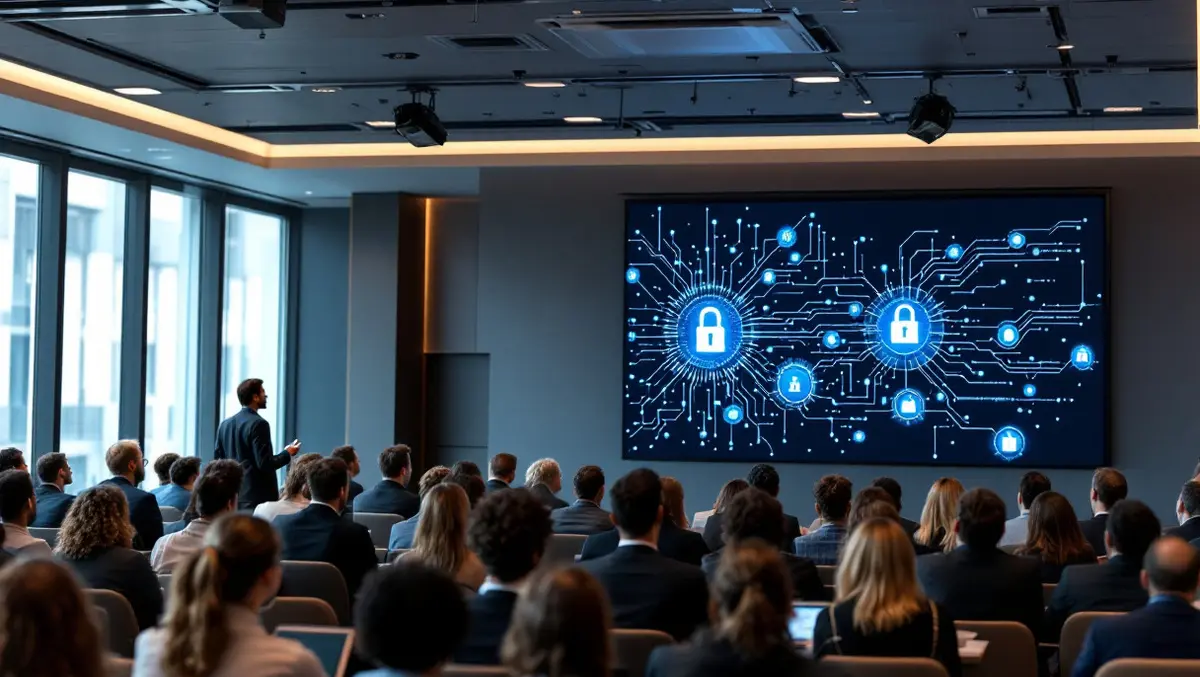
Infosecurity Europe 2025 to spotlight AI-driven cyber risks
Infosecurity Europe 2025 is set to introduce new event features and thematic content in response to the growing impact of artificial intelligence on cybersecurity strategies.
The organisers have announced a dedicated AI and cloud security theatre as part of this year's event, accompanied by an expanded focus on generative AI and related security concerns across the wider programme. The developments reflect findings from Infosecurity Europe's 2025 Cybersecurity Trends Report, which identifies AI-generated attacks as the primary driver of cybersecurity investment among the surveyed professionals.
The report, which surveyed 231 IT security decision-makers, indicates a shift in risk perception, with 28% naming generative AI as the top perceived risk, surpassing other longstanding concerns. The influence of AI appears to be significant across industry leadership and organisational functions, with 78% of respondents stating that AI will necessitate a complete overhaul of their security strategy, 71% predicting increased automation within their organisations, and 80% reporting regular discussions about AI at the board level.
To address these shifts, the new AI and cloud security theatre will cover topics such as deepfakes, automated phishing, large language model exploitation, and approaches to securing AI and generative AI systems. The agenda will also include examination of cloud security issues, encompassing misconfigurations, identity management, and threats associated with APIs, all within the context of the evolving landscape shaped by AI advancements.
"AI is fundamentally reshaping how we think about cyber risk, and how we plan for it. What we're seeing this year is a community eager to move beyond awareness into action, to understand where the real risks are, what the opportunities might be and how to respond strategically," Brad Maule-ffinch, Event Director at Infosecurity Europe, commented.
Event organisers will also launch the Channel Zone, a new area designed for resellers, integrators, managed security service providers (MSSPs), and related channel partners. This area will feature a dedicated keynote programme and workshops focused on buying trends, the impact of AI-driven transformation, and the adoption of emerging technologies within the channel ecosystem. The aim is to facilitate practical business conversations and provide attendees with insight for navigating a marketplace increasingly defined by AI and cloud solutions.
Among the event highlights, CISO Ian Thornton-Trump will present, discussing the effects of AI adoption on cybersecurity practices. Attendees will explore how early use of AI enhances threat detection, improves response times, and increases operational efficiency, as well as how MSSPs are integrating AI into their service roadmaps through real-world case studies.
To further aid decision-making, the Infosec Hub will provide a space for cybersecurity professionals seeking guidance on selecting and deploying solutions. The Hub will feature peer discussion groups and drop-in clinics with analysts from Forrester and Frost & Sullivan. Access to the Infosec Hub is provided through specific badge upgrades for attendees.
Infosec Table Talks will offer curated small-group discussions for attendees to engage in frank conversations about AI security, identity management, and practical implementation challenges in a vendor-neutral setting. Each session is scheduled to last between 30 and 45 minutes, with reservation available in advance.
The event programme includes several high-level roundtables and workshops. Forrester analysts Paul McKay and Madelein van der Hout will present the firm's perspective on the Top Ten Emerging Technologies for 2025 and their potential effects on cybersecurity strategy and investment. Frost & Sullivan will host a roundtable centred on human-centric approaches to defence amid the rise of AI-generated threats. Representatives of ECSO and NCSC will examine the state of cybersecurity policy in the EU and UK, including prospects for harmonisation and cross-border collaboration. The UK Department for Science, Innovation, and Technology (DSIT) will offer a session covering policy-driven initiatives aimed at fostering secure software development, AI risk management, and resilience in IoT and operational technology.
Additional drop-in clinics throughout the event will provide direct access to analysts for discussions on governance, risk and compliance, human risk management, and professional registration. Workshops from Forrester and Frost & Sullivan are also planned, addressing topics such as spending priorities and the future landscape across multiple security domains.
Infosecurity Europe 2025 will feature over 300 exhibitors and speakers from government, industry, and academia. The programme and event spaces have been designed to support the cybersecurity community with practical guidance and expert insights aligned with current trends and emerging challenges.


